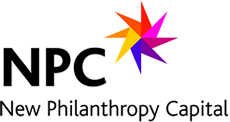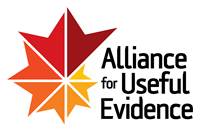The Difference is a magazine that launched by Simon McKeon in 2011. The Difference is used as a strategy for organising fundraising and corporate sponsorship for charities that work in the areas of disadvantage covered in the publication.
This is the first catalog of methods for the Double Bottom Line Project that for-profit and nonprofit social ventures and enterprises can use to assess the social impact of their activities. It analyses feasibility and credibility of 9 methods and provides examples of them in use:
- Theories of Change
- Balanced Scorecard
- Acumen Fund Scorecard
- Social Return Assessment
- AtKisson Compass Assessment
- Ongoing Assessment of Social Impact
- Social Return on Investment
- Benefit-Cost Analysis
- Poverty and Social Impact Analysis
‘Exceeding Expectations’ is a report by Kevin Gulliver and Dawn Prentice from Human City institute (HCi) for Trident Social Investment Group on a comprehensive set of social accounts. The report tracks the community impact of Trident using a triangulated approach to evaluation of economic and social value based on HCI’s ‘Measuring-Up’ methodology. It shows how social landlords can measure their wider impact beyond the bottom line. More importantly, the report clearly illustrates how economic and social value can be measured and presented in a highly collaborative way with extensive involvement of stakeholders, including partners and residents. It also represents as case study of a major social landlord group that includes housing associations, charities and social enterprises. The results fed into the development of Trident’s Social Investment Strategy.
J-PAL Europe was established in May, 2007 to expand J-PAL advocacy work in Europe and include European researchers in the J-PAL network. The office also manages J-PAL activities in the Middle East and parts of northern and francophone Africa. Based at the Paris School of Economics, J-PAL Europe works to improve the effectiveness of social programs world-wide by supporting researchers working on randomized trials and disseminating their results in order to provide policymakers with reliable information that can make their policies more effective.
J-PAL Europe is a regional office of J-PAL, a focal point for development and poverty research based on randomized trials.
More than 6400 publications have now been selected by TSRC for inclusion in the Third Sector Knowledge Portal - an easy-to-use online library of research, evidence, and analysis.
It has been developed by TSRC in partnership with the British Library and the Big Lottery Fund, and brings together over 6000 works such as: impact reports from third sector organisations; academic research projects; government studies; and more, in one collection of downloads, links and summaries.
The Agence Nouvelle des Solidarités Actives is a French non-profit organisation that puts into place local, experimental and innovative actions to fight against poverty and exclusion.
FRC Group has been producing impact reports, social reports and sustainability reports every year since 1999. FRC Group is a leading social business, running commercial businesses that produce financial profits and create a social dividend by giving people in poverty and unemployment the opportunity to change their lives. A selection of their reports are available to download on their website.
Opportunity International empowers people living in poverty to transform their lives, their children’s futures and their communities. Their 2013 Social Performance Report documents their journey of transforming their social mission into practice.
This report provides a summary of the findings and activity from the first year of the Impact Programme. It provides an insight into the operations of the programme and the progress that has been made in that time. The report draws together material from all of the programme partners and highlights the main findings that have come out of their initial work – from CDC’s interaction with the market, the GIIN’s most up to date research and the PCU’s (PwC) baseline work. It will be of particular interest to donors, members of the investment community and Fund Managers.
This article is by Neil McHugh, Stephen Sinclair, Michael Roy, Leslie Huckfield and Cam Donaldson. It provides a rounded critique of social impact bonds (SIBs): a newly developed and innovative financial investment model, developed in the UK and starting to spread internationally that could transform the provision of social services. Although SIBs have the potential to influence delivery by all providers, this article raises three concerns about their possible effects – in relation to their potential outcomes, unintended consequences for the UK third sector, and governance – and then reflects on SIBs as the latest manifestation of the ideological shift which the UK third sector is undergoing.
This paper from Oxfam summarises a two-year research engagement project with the investment community on their role in contributing to poverty reduction and sustainable development.
This report, by Howard White, reviews the methodological and practical issues in conducting studies on impact, drawing on the experience of the Independent Evaluation Group of the World Bank. Impact evaluation provides a measure of aid effectiveness, that is how good development aid is at reducing poverty. Critics of aid argue that there have been few attempts to measure its impact. This may have been true in the past, but there is a growing body of literature on impact evaluation.





